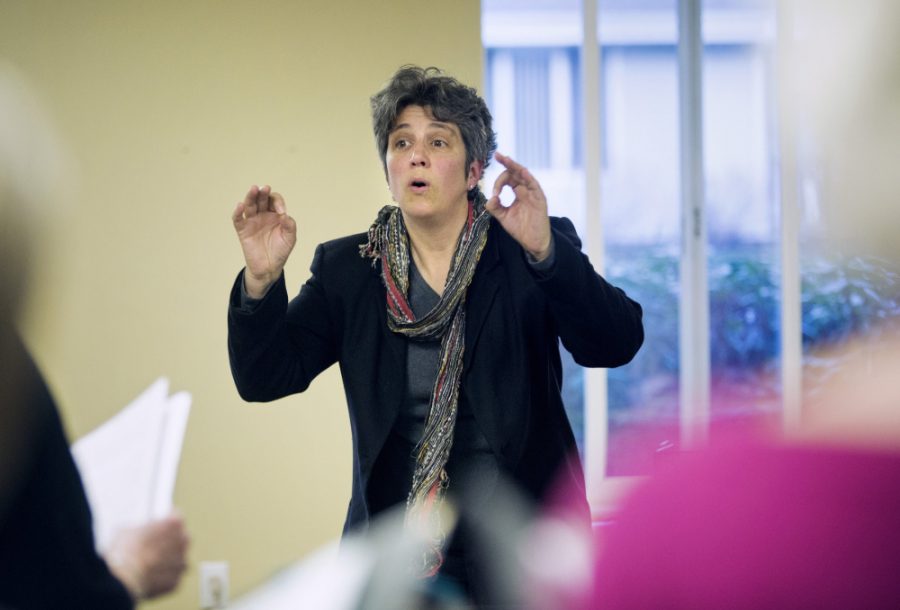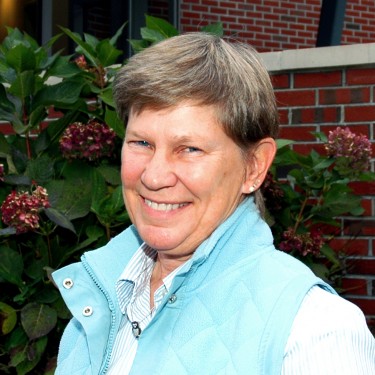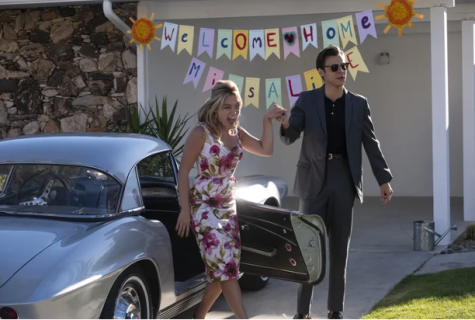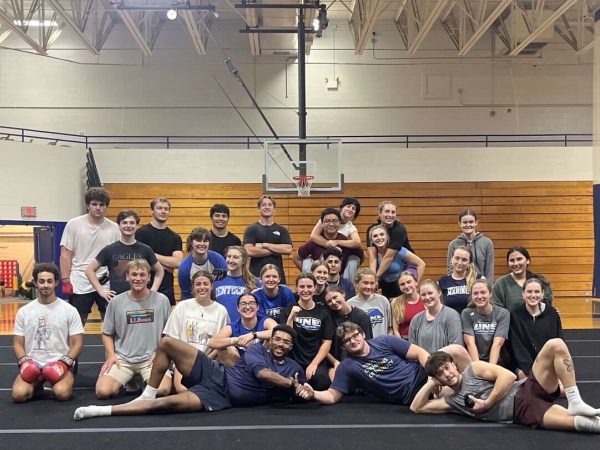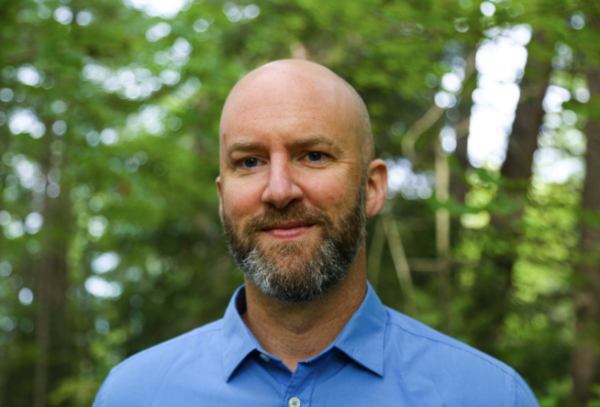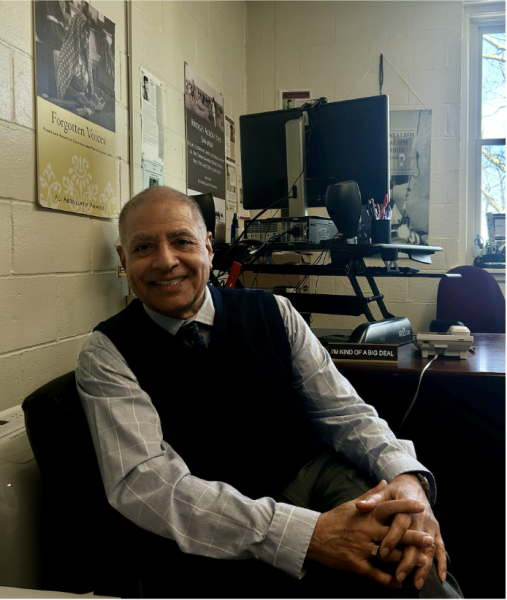A Symphony At Her Fingertips
Getting to know a conductor who deeply understands the value of human connection in music
Dr. Deirdre McClure has earned her self-confidence through a life fueled by a passion for music and a deep understanding of her craft.
“The technique of what I do is very good. I can come up with a musical idea and it comes out in my hand and that came from tremendous hard work and a lot of failures.”
McClure is an accomplished and well-respected orchestral conductor with a deep profound love for what she does. She lives an artist’s life, which to her is a mix of challenges and triumphs, “Being in the arts and earning a living as a musician is tough. I have three half-time jobs, no retirement or benefits or health insurance or job security.”
“How do I stay buoyant? I love my work. It makes me happy to make music, and I hope I am making a difference in the lives of the people I interact with. It is meaningful beyond words, but hard.” Currently, McClure splits her time as a music teacher at the University of New England, being a conductor for the Odeon Orchestras up in Rockport, Maine, and Sea Change Chorale in Portland, Maine, where she and her family reside.
In her 11th year at UNE, she teaches Music Appreciation and Music in Film and Animation spawned from her time touring the United States, Mexico, and Canada with the Club Foot Orchestra, which performs contemporary music for silent film and contemporary animation.
“Conducting is a musical profession that makes no sound” McClure describes. “Any sound that I get is generated from other people.” As a conductor, she translates music through gestures explaining that conducting is as much emotion as it is a craft. “Emotional conversation is a lot of my world, so the feelings I have are like every feeling you could have, if it’s a gloomy piece of music, well that’s the feeling,” she says.
Conducting is all about the harmonious connection between the music, the conductor, and the artist. There’s a complexity to conducting McClure appreciates. “Let’s say it’s a fairly joyous piece of music, there’s an exuberance that I might display to try to get them to feel that way so that they can create this music that has that emotional content.”
She notes one example of the importance of having that emotional connection. During her time as Musical Director and Conductor for the Oakland Opera Theater in the San Francisco Bay area from 2001-2014, they performed an opera by Igor Stravinsky called Rake’s Progress, at the Oakland Metro Opera house. For this production, the director placed the orchestra behind the stage, hindering her ability to conduct in the eyesight of her singers which broke that crucial connection.
The singers were only able to view Dr. McClure through a live-streamed tv on display, but because she couldn’t conduct in person, it felt like a disaster. “To be cueing into a camera instead of a person’s face [doesn’t work]. That relationship that I have with a singer, I look at the singers’ eyes and face and we go onto the next thing together. If I can’t see them, there’s no connection.”
There are always two sides to that connection, and violinist Joyce Hillman of the Odeon Orchestra reciprocated the importance of that connection that McClure makes. “In my opinion, one of Dr. McClure’s most important requisites is that we watch her. Literally, we must have our eyes on her. A conductor of her caliber can speak volumes with a mere gesture or a look, and if our eyes are not on her to see this, then we miss crucial information. Her whole entire body can tell us how to play if we just watch.”
McClure found herself growing up in a household that encouraged exploration and supported interest, explaining, “My parents felt that whatever we were attracted too, they would enable.” For McClure, “Music really got me.”
At five she picked up the flutophone and slowly got into playing piano in the following years. Playing flute in her first middle school band, the dots started to connect as orchestral music became a part of her life regularly. “I was drawn to orchestral music,” she said. In eighth grade, she left the flutophone for the bassoon.
She played all through high school. But in 10th grade, she joined a youth symphony and her “world just exploded with these [orchestral] pieces.” There, her passion for orchestral music took off. “Orchestral music and the depth and quality of that stuff was just fabulous; I was in my element.”
By senior year she knew from then on that she wanted to be a conductor because it seemed the only natural thing to do. Playing the Bassoon wasn’t going to be enough as the bigger picture of orchestral music enticed her to her core. The symphony of her life had truly begun.
She received a B.A., in Piano at Macalester College and an M.M, D.M.A., in Conducting at Peabody Conservatory of Music. Reflecting on her time in graduate school, “There was a tremendous amount of study and honing my craft. It was hard. I had a teacher that could be cruel but strong, and it made me a fabulous conductor.”
McClure smiles when she talks about conducting and takes her time searching for the right words to explain her passion. “I’ve been lucky in much of the work that I do is work that is written by really fabulous composers. I get to spend my time with Beethoven, with Bach, and with Charchofsky. They are such great artists. You can tell when you’re working with the work of a great artist. The passion and structure of a piece of music, they really make a difference.”
Dr. McClure looks forward to integrating more of her opera background into her current work as she continues to find meaning and passion in every day she gets to thrive in her element “This [integration] is already happening with my social justice chorus concerts, where staging, dance, and music work together to envelop an audience in a transportive experience. That’s exciting to me! I hope to continue conducting silent films too. That’s really fun and the music is great.”



